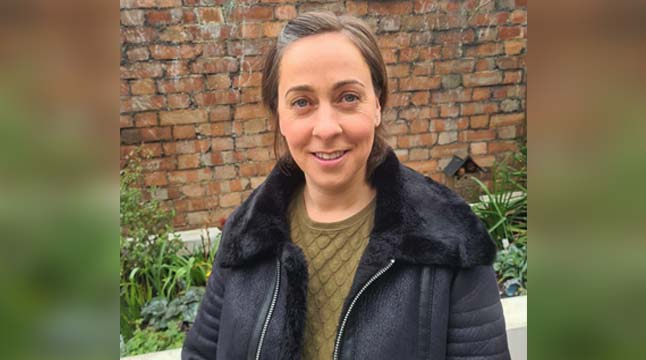Sharing experiences
Over the past year our campaigners and ambassadors have shared their stories as part of our Visible Hate campaign. They’ve told of the appearance-related abuse and hate crimes people in the visible difference community all too often experience.
Our latest Visible Hate campaign film went live in January 2020. #VisibleHate trended in the UK on launch day and the film generated discussion about the campaign across the globe!
In autumn our campaigner, Atholl, featured in a Scottish Government and Police Scotland film to encourage more people to report hate crimes. It was great to be asked to take part – it means we know that appearance-related abuse and hate crime is on the radar of the authorities who can help us make a difference – but obviously we want to reach the point where we can confidently answer that call with, “Sorry, we don’t know anyone who has experienced a hate crime.”
So, in 2021 we will continue speaking out, helping more people to know that they aren’t alone and to find out how they can report an appearance-related hate incident or hate crime.
We want to see appearance-related hate crimes and incidents being recorded accurately by the police and included in Home Office statistics so everyone can see the real picture of the experiences of people with visible differences.
Making changes to hate crime law
At the end of the year we responded to the Law Commission consultation about potential changes to hate crime law in England and Wales. The consultation asked about which characteristics should be covered by hate crime law. It also wanted views on whether the additional legal protections currently offered to the characteristics of race and religion, should be extended to include disability, and any other new characteristics that may be added to hate crime laws.
In current hate crime law, people must report a hate incident or hate crime involving their visible difference as a disability hate crime. We know that many people in our community don’t identify as having a disability, whilst for some it is an important part of their identity.
That’s why we called for visible differences to be recognised as a separate characteristic in the consultation response to ensure that everyone in our community feels protected. We also suggested that if creating a separate characteristic can’t happen at this time, then the definition of disability should be expanded to explicitly reference visible difference.
Ultimately, we want to see appearance-related hate crimes and incidents being recorded accurately by the police. We would like this data to be included in Home Office statistics so everyone can see the real picture of the experiences of people with visible differences. This will help us to show the scale and impact of these hate incidents and crimes.
In 2021 we will continue speaking out, helping more people to know that they aren’t alone and to find out how they can report an appearance-related hate incident or hate crime.
We also backed the idea, put forward by the consultation, of creating a Hate Crime Commissioner. We think it would show a commitment to improving the situation for those communities most at risk of experiencing hate crime.
Mikaela, who, along with other campaigners, contributed to our consultation response, suggested: “Having a Hate Crime Commissioner is potentially a very good idea; my personal preference would be that such a representative be from a demographic group protected by hate crime law – i.e. someone who has experienced hate crimes, or is at risk of such – as well as being a legal expert.”
Now the consultation is closed, the Law Commission will analyse all the responses received and start policy development. We look forward to getting involved in that work where we can.
What’s next?
As well as keeping on top of the potential changes to hate crime legislation, we’re going to be building our relationships with key partners, like the Home Office and the police. Key to this is making sure we have real-life experiences to include in consultation responses, to share when we’re talking to MPs, or authorities like the police. If you’d like to get involved and campaign with us to end Visible Hate, make sure to read our campaign page to find out more about the actions you can take!
